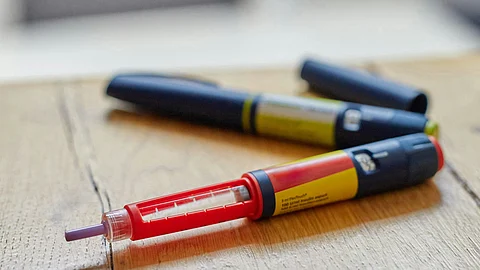

The US Federal Trade Commission (FTC) has filed a complaint against three major pharmacy benefit managers (PBMs) - CVS Health's Caremark, Cigna's Express Scripts, and UnitedHealth's Optum Rx. The FTC alleges that these companies engaged in illegal rebate programs that drove up the price of insulin.
Allegations of Unfair Practices:
The FTC claims that the PBMs accepted money from drugmakers in exchange for keeping lower-cost insulin off their lists of approved drugs. This created a system where patients were forced to pay more for life-saving medication. The complaint also alleges that the PBMs' rebate practices amount to unfair methods of competition.
Rising Insulin Costs:
The list price of Humalog, a common insulin, rose 1,200% between 1999 and 2017. During this period, the PBMs collected billions in rebates and fees. Patients with deductibles and coinsurance often paid the unrebated higher list price, while the PBMs kept hundreds of millions of dollars in rebates and fees.
Industry Dominance:
The three PBMs control about 80% of prescriptions filled in the US. They negotiate with drugmakers and manage prescription plans for employers and health insurers, influencing what drugs are available at what price for tens of millions of Americans.
Regulatory Scrutiny:
Lawmakers from both parties have called for new laws to force more transparency. The FTC hopes the enforcement action will lead to lower list prices for insulin and other drugs. This lawsuit is part of an escalating conflict between the FTC and the three PBMs.
PBM Response:
The PBMs maintain that nearly all rebates from drugmakers are passed on to clients. They argue that they are a necessary counterweight to the unchecked power of pharmaceutical companies to set prices.
Insulin Market Dynamics:
The insulin market is dominated by three manufacturers: Eli Lilly & Co., Sanofi SA, and Novo Nordisk A/S. While the FTC didn't take action against these companies, they may face future enforcement actions.
Recent Developments:
US Medicare expenditure reached $13 billion in 2017. Recent efforts have aimed to cap patients' costs for insulin products. Last year, Lilly and Sanofi pledged to cap patients' costs for some insulin products at $35 a month. Novo Nordisk lowered list prices for its top-selling insulin products.
Ongoing Litigation:
States and municipalities have filed suits against both PBMs and drugmakers, alleging they drove up insulin costs for public-sector health plans. The companies have disputed these allegations.
FTC's Next Steps:
The FTC's complaint was filed in its administrative court. Three of the five FTC commissioners voted to file the complaint, while two recused themselves. The agency plans to continue investigating the industry's practices.
(Input from various sources)
(Rehash/Vaishnavi Dalvi/MSM)
